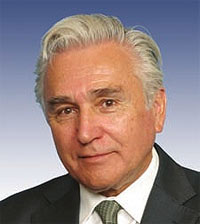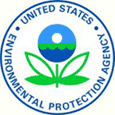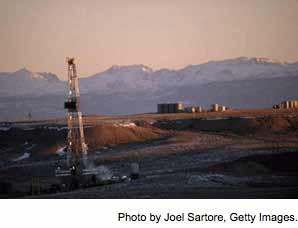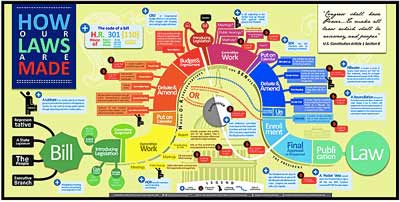Government
Environmentalists have long contended that the natural gas drilling method known as hydraulic fracturing — or “fracking” — poses a danger to drinking water supplies for millions of Americans.
Alarming reports of water contamination in states where such drilling is common, including Colorado, Pennsylvania and Wyoming, have exacerbated their fears.
Environmentalists believe disclosure rules will help them prove that their long-held claims about the inherent dangers of fracking are true. If testing finds an unusual chemical in a private water well, for example, it is far easier to make a connection to a nearby drilling operation that uses the same chemical.
Gas firms, despite their concerns over revealing proprietary chemical formulas to government regulators, acknowledge that there is a “fear of the unknown” when it comes to fracking, and they have come under increasing pressure to be more forthcoming about their operations. Many, but not all, now view disclosure as a way to build public trust, and to prove what numerous state and federal studies have already found: that fracking isn’t responsible for water contamination.
Comment
Arkansas Rule B-19
By Robert Finne on Dec 17, 2010 11:03:56 AM
The new Arkansas rule, like the Wyoming rule, is a gift to drillers from state regulators. It allows drillers to publicly say they are disclosing while they have a gaping loophole that allows them to arbitrarily decide what to disclose.
What this means is a driller can pick chemicals in his mix and declare them "trade secret" at which point he can say its a "Biocide" without actually revealing which biocide it is. There are hundreds if not thousands of chemicals in the biocide family.
Some are harmless and some are known carcinogens. The reason these companies say they need to maintain "trade secrets" is so that other companies don't get their formulas but their logic is flawed.
Who extracts the gas depends on who has the lease for the minerals. It's not as if someone is going too get their gas if they have their formula. Thats pretty simple.
The act of declaring "trade secret" only prevents someone from physically stealing a formula through industrial espionage. If a company reverse engineers or discovers by trial and error they are free to use it. Only a patent would prevent a competitor from duplicating a formula.
The ONLY reason to hide behind "trade secret" is to prevent the information of what they are using from becoming public knowledge.
On the day of a large rally outside the Capitol, Senate Democrats introduced the first significant legislation against hydraulic fracturing since the 2010 moratorium imposed by former Gov. David Paterson and the Department of Environmental Conservation.
Sens. Tony Avella, D-Whitestone, Liz Krueger, D-Manhattan, and Joseph Addabbo, D-Queens, introduced a package of bills April 11 that includes three bills for tighter regulations and transparency for oil and gas drilling and a bill by Avella to ban hydraulic fracturing, or hydrofracking, in New York State.

"I don't see it as that great of a request to require these gas companies to inform the public on what chemicals they're blasting into the Earth," said Krueger. "They want us to just fall in line and not ask any questions, to just trust them. Well, we saw what they did with Pennsylvania's trust, and I say no."
She was referring to a lawsuit filed by 31 Pennsylvania residents against the Southwest Energy Co. accusing the company of contaminating their water supplies for drinking, cooking and bathing with hazardous chemicals and pollutants as a result of hydrofracking.
Krueger's bill (S.425) would prohibit the use of fracking fluids "containing chemicals that pose a risk to human health." Also in the package is S.4251-a, a bill sponsored by Addabbo, that would require treatment facilities to test waste from hydraulic fracturing operations for radioactivity. The Assembly bill (A.2922) is sponsored by Robert Sweeney, D-Babylon...
See: New York State Assembly Passes Moratorium on Hydrofracking | Governor Vetoes Bill
Student Disrupts Government Auction of 150,000 Acres Of Wilderness For Oil & Gas Drilling.
Democracy Now reports on student action by Tim DeChristopher.
In a national broadcast exclusive, University of Utah student Tim DeChristopher explains how he bought 22,000 acres of land in an attempt to save the property from drilling. The sale had been strongly opposed by many environmental groups. Stephen Bloch of the Southern Utah Wilderness Alliance said: "This is the fire sale, the Bush administrations last great gift to the oil and gas industry. This is the first 10 minutes of the interview. For the rest go to DemocracyNow!
 For full interview click here.
For full interview click here.
See: Judge says drilling lease lawsuit too late
See: Tim DeChristopher's blog and update on his legal battle.
See: As climate crime continues, who are we sending to jail? Tim DeChristopher?
Thousands of the largest water polluters in the United States are outside the Clean Water Acts reach because the Supreme Court has left uncertain which waterways are protected by that law.
As a result, some businesses are declaring that the law no longer applies to them. And pollution rates are rising. About 117 million Americans get their drinking water from sources fed by waters that are vulnerable to exclusion from the Clean Water Act.
See: New York Times, February 28, 2010. "Rulings Restrict Clean Water Act, Foiling E.P.A. | Mixplex
"We are, in essence, shutting down our Clean Water programs in some states. This is a huge step backward. When companies figure out the cops can't operate, they start remembering how much cheaper it is to just dump stuff in a nearby creek."
--Douglas F. Mundrick, EPA Lawyer.
U.S. Department of Health and Human Services, Center for Disease Control. July 2006. ToxFAQs™ for Hydrogen Sulfide (Ácido Sulfhídrico) In addition to methane, natural gas typically contains other hydrocarbons such as ethane, propane, butane, and pentanes. Raw natural gas may also contain water vapor, hydrogen sulfide (H2S), carbon dioxide, helium, nitrogen, and other compounds.
ATSDR serves the public by using the best science, taking responsive public health actions, and providing trusted health information to prevent harmful exposures and diseases related to toxic substances. ATSDR is directed by congressional mandate to perform specific functions concerning the effect on public health of hazardous substances in the environment. These functions include public health assessments of waste sites, health consultations concerning specific hazardous substances, health surveillance and registries, response to emergency releases of hazardous substances, applied research in support of public health assessments, information development and dissemination, and education and training concerning hazardous substances.
See: Dusty Horwitt. (2009). Drinking Water Threatened by Toxic Natural Gas and Oil Drilling Chemicals. Environmental Working Group.

Sen. Robert Casey
S.1215. 6/9/2009. `Fracturing Responsibility and Awareness of Chemicals (FRAC) Act'. Sponsor: Sen. Casey, Robert P., Jr. [PA], Co-Sponsors in alphabetical order: Sen. Cardin, Benjamin L. [MD], Sen. Feinstein, Dianne [CA], Sen. Gillibrand, Kirsten E. [NY], Sen. Sanders, Bernard [VT], Sen. Schumer, Charles E. [NY].
Referred to Senate committee. Status: Read twice 6/9/2009 and referred to the Committee on Environment and Public Works.
See House Bill: H.R. 2766. 111th Congress. Rep. Diana Degette. Rep. Maurice Hnchey, et al. Fracturing Responsibility and Awareness of Chemicals Act of 2009 - Amends the Safe Drinking Water Act to: (1) repeal the exemption from restrictions on underground injection of fluids near drinking water sources granted to hydraulic fracturing operations under such Act; and (2) require oil and gas companies to disclose the chemicals used in hydraulic fracturing operations. (6/9/2009).

Rep. Diana Degette

Rep. Maurice Hinchey
See: CIVICA: Centrist & Independent Voters in Coalition for America. "How out Laws are Made." 2011-04-09.
Sample the Electronic Newsletter above featuring articles on industrial development of natural gas to gain a perspective on how government energy policy is crafted.
U.S. Department of Energy (DOE), Energy Information Administration. Report #:DOE/EIA-0484(2009).
Much of the increase in U.S. natural gas reserves results from expanded knowledge and exploration of shale resources.
World marketed energy consumption increases by 49 percent from 2007 to 2035 in the Reference case.
Total energy demand in non-OECD countries increases by 84 percent, compared with an increase of 14 percent in OECD countries.
NETL Oil & Natural Gas Technologies Reference Shelf. Recently released and in-demand reference materials are available directly from this page using the links on this website.
The National Energy Technology Laboratory (NETL), part of DOE’s national laboratory system, is owned and operated by the U.S. Department of Energy (DOE). NETL supports DOE’s mission to advance the national, economic, and energy security of the United States.
Letter sent to the NYS Dept. of Environmental Conservation (NYSDEC) by the U.S. Environmental Protection Agency (EPA). Written in public response to the Draft Supplemental Environmental Impact Statement (dSGEIS). Dec. 30. 2009.
EPA believes that the analysis and discussion of cumulative and indirect impacts in the dSGEIS need to be significantly expanded. Even with its generic format, the dSGEIS should discuss the impacts that may result from past, present, and reasonably foreseeable future projects as well as those impacts associated with gas drilling and hydro fracturing that may occur later in time or at a distance from the immediate project site.
See: Walter Hang's Letter to DEC Commissioner Grannis Regarding Additional Natural Gas Hazards
Hydraulic fracturing is the injection of fluid under pressure to facilitate the production of oil and natural gas.
This page explains the process of hydraulic fracturing, how hydraulic fracturing is regulated, and EPA’s national 2010-2012 study on hydraulic fracturing of coalbed methane.
Weston Wilson Whistle Blower Letter
The U.S. Environmental Protection Agency (EPA) 2002 Study was crticized by EPA Whistle Blower Weston Wilson in this letter written to Senators Allard and Campbell and Representative DeGette. Denver, Colorado. October 8th, 2004.
See New York Times Editorial on Halliburton Loophole.
See also the Energy Policy Act of 2005.
U.S. EPA, 2002. Study to Evaluate the Impacts to the U.S. Drinking Water Supply (USDWs) by Hydraulic Fracturing of Coalbed Methane Reservoirs.
The study of coalbed methane (CBM) wells involved interviews with approximately 50 state and local government agency staff members, communications with about 40 citizens who were concerned that CBM production had adversely affected their drinking water wells, and searches for confirmed incidents of drinking water well contamination.
EPA published a draft report in August 2002, requested public comment, and incorporated changes as appropriate in Evaluation of Impacts to Underground Sources of Drinking Water by Hydraulic Fracturing of Coalbed Methane Reservoirs; National Study Final Report (2004)
The EPA's guidance led Congress to pass the 2005 Energy Policy Act that included the "Halliburton Loophole" of 2005. Exemption to EPA regulations for safe drinking water was granted for fracking in 2005.
"EPA has preliminarily found that the potential threats to public health posed by hydraulic fracturing of coalbed methane wells appear to be small and do not justify additional study. " (2002).
See: Hydraulic Fracturing Background Information
See: NYT Editorial: Questions About Fracturing
EPA's Current Hydraulic Fracturing Study (2010-2012)
In its Fiscal Year 2010 budget report, the U.S. House of Representatives Appropriation Conference Committee identified the need for a focused study of this topic. EPA agrees with Congress that there are serious concerns from citizens and their representatives about hydraulic fracturing’s potential impact on drinking water, human health and the environment, which demands further study.
More information on EPA's Hydraulic Fracturing Research Study.
Hydraulic Fracturing Research Study PDF (2pp, 343k)
See: Stakeholder Involvement Strategy
EPA Update. November 9-10 2010
On November 9, 2010, EPA announced that eight out of the nine hydraulic fracturing companies that received voluntary information requests in September agreed to submit timely and complete information to help the Agency conduct its study on hydraulic fracturing. However, the ninth company, Halliburton, has failed to provide EPA the information necessary to move forward with this important study. As a result, and as part of EPA's effort to move forward as quickly as possible, today EPA issued a subpoena to the company requiring submission of the requested information that has yet to be provided.
See: Letter sent by EPA to Halliburton PDF (2pp, 516K).
See: The subpoena sent by EPA to Halliburton PDF (11pp, 3.5M).
See: EPA Press Release on Results of Voluntary Information Request
See: Birth of EPA
Public Comments for Peer Review Panel Needed by November 22, 2010
On September 10, 2010, the Science Advisory Board (SAB) Staff Office posted a List of eighty-five Nominated Candidates for a Panel under the auspices of the SAB that will provide independent expert advice on EPA’s draft Hydraulic Fracturing Study Plan to investigate the potential public health and environmental protection research issues that may be associated with hydraulic fracturing. This List of Candidates is posted on the SAB Web Site. Public comments on this List of Candidates were received by October 1, 2010.
See: Natural Gas Drillers Protest Nomination of Fracking Critics for EPA Review Panel
See: Molly Ivins (2003). Bushwhacked : Life in George W. Bush's America

EPA regulates public water systems; it does not have the authority to regulate private drinking water wells. Approximately 15 percent of Americans rely on their own private drinking water supplies, and these supplies are not subject to EPA standards, although some state and local governments do set rules to protect users of these wells. Unlike public drinking water systems serving many people, they do not have experts regularly checking the water’s source and its quality before it is sent to the tap. These households must take special precautions to ensure the protection and maintenance of their drinking water supplies.
"...Check the paper or call your local planning or zoning commission for announcements about hearings or zoning appeals on development or industrial projects that could possibly affect your water.
Attend these hearings, ask questions about how your water source is being protected, and don't be satisfied with general answers. Make statements like "If you build this landfill, (just an example) what will you do to ensure that my water will be protected." See how quickly they answer and provide specifics about what plans have been made to specifically address that issue."
















